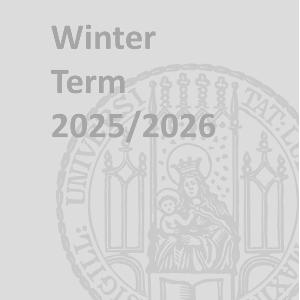
Educating future leaders in innovation management
Join us across various course formats to access the latest research insights and best practices in innovation management and entrepreneurship.
Courses
Courses in Summer Term
All courses and exams are delivered in English.
Bachelor of Science (BSc)
Business Modelling: Creating and Capturing Value
Hauptseminar PStO 2015: Current Challenges in Innovation Management, October 2025 renamed to Innovation Management (Seminar & Proseminar)
Hauptseminar PStO 2024: Innovation Management (Seminar & Proseminar)
impACTup!: Innovation and Entrepreneurship for Better Futures (Seminar) (Online Course)
Master of Science (MSc)
Feeding and Managing the Innovation Pipeline (Lecture/Tutorial) (PStO 2018)
Value Portfolios and Temporality (Lecture/Tutorial) (PStO 2024)
Innovation for Impact (Seminar) (PStO 2018, PStO 2021)
Current Topics in Innovation & Entrepreneurship (Seminar) (PStO 2024)
Master Management International Triple Degree (ITD)
Data-Based Decision-Making (Lecture/Tutorial)
Master of Business Research (MBR)
Scientific Publications (Seminar)
Notes:
Courses marked with an (x) are offered (in the main responsibility) by another chair in the corresponding semester.
Note: The scope of a seminar paper relates to the number of ECTS points that can be earned for successful participation in the seminar. This scope is measured by the number of signs of the paper, including blanks. In general, the scope of a paper in a 3 ECTS-seminar constitutes 22,200 signs (approx. 10 pages, excluding figures and tables) and 44,400 signs (approx. 20 pages) for a 6 ECTS seminar. However, these guidelines are only valid for seminars, in which the seminar paper is the only examination form. When the examination form consists of more than one parts, the length of the seminar paper will be reduced accordingly. For example, if the seminar examination for a 6 ECTS-seminar consists of a presentation and papers, each examination part accounts for 3 ECTS (50% presentation, 50% paper). In this case, the length of the seminar paper equals 22,2000 signs (3 ECTS).
Courses in Winter Term

© LMU SOM
All courses and exams are delivered in English.
Bachelor of Science (BSc)
Hauptseminar PStO 2015: Innovating for Organizational, Market, and Societal Impact, October 2025 renamed to Innovation Management (Seminar & Proseminar)
Hauptseminar PStO 2024: Innovation Management (Seminar & Proseminar)
Bachelor Modul: Marketing, Management, and Innovation: "Creating Market Offerings" (Lecture/Tutorial) (PStO 2024) (PStO 2024)
Bachelor Specialization Module: Technology & Innovation II "Managing the Front End of Innovation" (PStO 2015)
impACTup!: Innovation and Entrepreneurship for Better Futures (Seminar) (Online Course)
Master of Science (MSc)
Subject-specific foundation: Marketing, Management, and Innovation "Foundations of Value Management" (Lecture/Tutorial) (x)
Innovating for Impact (Seminar)
Current Topics in Innovation and Entrepreneurship: Social Entrepreneurship Lab (Seminar) (PStO 2018, PStO 2024)
Project Course Innovation Management (Research and Praxis) (Project Course)
Notes:
Courses marked with an (x) are offered (in the main responsibility) by another chair in the corresponding semester.
Note: The scope of a seminar paper relates to the number of ECTS points that can be earned for successful participation in the seminar. This scope is measured by the number of signs of the paper, including blanks. In general, the scope of a paper in a 3 ECTS-seminar constitutes 22,200 signs (approx. 10 pages, excluding figures and tables) and 44,400 signs (approx. 20 pages) for a 6 ECTS seminar. However, these guidelines are only valid for seminars, in which the seminar paper is the only examination form. When the examination form consists of more than one parts, the length of the seminar paper will be reduced accordingly. For example, if the seminar examination for a 6 ECTS-seminar consists of a presentation and papers, each examination part accounts for 3 ECTS (50% presentation, 50% paper). In this case, the length of the seminar paper equals 22,2000 signs (3 ECTS).
Bachelor Thesis
Procedure at IIM

© nick-fewings-zF_pTLx_Dkg-unsplash
As a business administration student at the LMU, you have the possibility of writing your Bachelor thesis at our institute. We offer several application deadlines during the year.
Topics
We offer a number of topics for students to work on as part of their bachelor thesis. The topics are updated regularly (at the latest on the "topic" date indicated in the schedule column). You will be asked to indicate your topic preference(s) during the application procedure. You can find the corresponding dates and topics in the schedule column on the right.
Admission Requirements
The number of thesis students for supervision depends on the available capacity at IIM. We are able to consider students for supervision who meet the following requirements:
- Passed "IIM Hauptseminar" (mandatory), seminar(s) and lectures at the IIM.
- Interest in phenomena and theories relating to innovation management.
Please also check the examination regulations of your study program at the ISC website.
Application
Please apply online and provide your topic preference (see list in "Topics" column).
Once you have completed the online application, please send the following documents to iim@som.lmu.de as one PDF: short letter of motivation, CV, Transcript of Records. The theses are assigned after application within the stated deadlines.
The date of registration with the ISC starts the clock on the eight (8) weeks to write your thesis (PStO 2015), and on the ten (10) weeks under PStO 2024.
Colloquium
You will present a progress report on your thesis work mid-way through the eight (8), resp. the ten (10) weeks, where you will receive feedback and guidance on content- and process-related aspects of the thesis in progress. Please note that presenting the Colloquium on the stated date is mandatory and no exceptions are possible.
Exam Specifications
- English language for Colloquium and Thesis.
- Further details can be found in the specific examination regulations of your studies and exam organization at the ISC website.
Schedule 2025/2027
Schedule applies to the BSc PStO 2015. Students matriculated under PStO 2024 will have slightly different submission dates; these will be confirmed with their supervisors after they receive the confirmation.
Wintersemester 2025/26 (1)
- Topics: 22.09.2025
- Application: 29.09.-03.10.2025
- Confirmation and Registration (ISC): 06.10.-10.10.2025
- Colloquium: 07.11.2025 (09:00-15:00)
- Submission thesis (ISC) PStO 2015 8 weeks after Registration at the latest on: 05.12.2025
Wintersemester 2025/26 (2)
- Topics: 19.12.2025
- Application: 05.-09.01.2026
- Confirmation and Registration (ISC): 12.-16.01.2026
- Colloquium: 13.02.2026 (09:00-15:00)
- Submission thesis (ISC) PStO 2015 8 weeks after Registration at the latest on: 13.03.2026
Sommersemester 2026
- Topics: 30.03.2026
- Application: 06.04.-10.04.2026
- Confirmation and Registration (ISC): 13.04.-17.04.2026
- Colloquium: 20.05.2026
- Submission thesis (ISC) PStO 2015 8 weeks after Registration: 08.06.-11.06.2026
- Submission thesis (ISC) PStO 2024 10 weeks after Registration: 22.06.-25.06.2025
Wintersemester 2026/27 (1)
- Topics: 14.09.2026
- Application: 21.09.-25.09.2026
- Confirmation and Registration (ISC): 28.09.-02.10.2026
- Colloquium: 30.10.2026
- Submission thesis (ISC) PStO 2015 8 weeks after Registration: 23.11.-26.11.2026
- Submission thesis (ISC) PStO 2024 10 weeks after Registration: 07.12.-10.12.2026
Wintersemester 2026/27 (2)
- Topics: 18.12.2026
- Application: 04.01.-08.01.2027
- Confirmation and Registration (ISC): 11.01.-15.01.2027
- Colloquium: 12.02.2027
- Submission thesis (ISC) PStO 2015 8 weeks after Registration: 08.03.-11.03.2027
- Submission thesis (ISC) PStO 2024 10 weeks after Registration: 22.03.-25.03.2027
Topics
Title: Identity Shifts in Entrepreneurship: A Systematic Review.
Topic Description: This thesis systematically reviews research on how entrepreneurial identities are formed, challenged, and transformed over time. The aim is to clarify how scholars conceptualize identity dynamics in entrepreneurship and which mechanisms previous studies propose to explain identity change over time. Based on the reviewed literature, the work will systematically structure existing knowledge and guide future research on founder identity evolution.
-----
Title: Volunteer Engagement in Business and Social Ventures: A Systematic Review.
Topic Description: This thesis provides a systematic literature review on volunteer engagement in business settings (e.g., corporate volunteering, extra-role behaviours) and social ventures that depend on volunteer contributions. By synthesizing conceptual and empirical insights, the thesis aims to clarify core mechanisms that distinguish volunteer engagement from paid work and to outline conditions under which businesses attract, retain and manage sustained volunteer involvement. The review aims to develop a conceptual framework that systematically organizes the diverse perspectives in the literature.
-----
Title: From Story to Success: The Role of Narratives in Entrepreneurship and Their Effects on Venture Outcomes.
Topic Description: This thesis systematically reviews research on the role and use of narratives in entrepreneurship. It examines how narratives in entrepreneurial contexts has been linked to different types of outcomes, including resource acquisition and funding, legitimacy and stakeholder support, opportunity recognition and exploitation, and identity formation, among others. By synthesizing findings across qualitative and quantitative studies, the thesis maps what kinds of narratives are studied, which outcomes they are associated with, and which mechanisms are proposed to explain these effects.
-----
Title: Measuring Sustainable Product Launches in the Consumer-Packaged Goods Industry: A Systematic Literature Review.
Topic Description: Sustainability has become a central concern in the Consumer-Packaged Goods (CPG) industry, where companies face increasing pressure from consumers, regulators, and stakeholders to reduce environmental impact and create responsible products. In this context, sustainable product launches—that is, the introduction of new products designed with environmental and societal considerations—are emerging as a critical lever for both competitiveness and long-term value creation. Despite growing interests, measuring sustainable product launches remains challenging, partly due to the multidimensional nature of sustainability and the lack of standardized evaluation frameworks. The aim of this thesis is to address this gap by synthesizing the fragmented measurement approaches across the innovation management, sustainability, and marketing literature. You will conduct a systematic literature review to identify, categorize, and critically analyze the existing measurement approaches for sustainable product launches within the CPG industry. The findings are expected to provide insights for managers, policymakers, and industry stakeholders to design more effective measures to capture sustainable innovation in the CPG industry.
-----
Title: Factors Influencing the Use and Effectiveness of Nutrition Claims in the Consumer-Packaged Goods Industry: A Systematic Literature Review.
Topic Description: Nutrition claims—statements on food packaging that highlight specific nutritional benefits, such as “low fat,” “high protein,” or “source of fibre”—have become a central tool in the Consumer-Packaged Goods (CPG) industry for communicating product value and influencing consumer choices. As consumer awareness of health and wellness grows, food manufacturers increasingly use nutrition claims to differentiate products, respond to regulatory pressures, and align with public health trends. Yet, the use and effectiveness of nutrition claims vary widely across firms and markets. The aim of this thesis is to synthesize fragmented insights across multiple disciplines on the factors influencing the use and effectiveness of nutrition claims in the CPG industry. You will conduct a systematic literature review to examine the internal and external factors that drive the use and effectiveness of nutrition claims within the CPG industry, primarily in the fields of innovation management, corporate strategy, and marketing. The findings are expected to guide both academic understanding and practical strategies for food producers seeking to leverage nutrition claims responsibly and effectively.
-----
Title: Clarifying Consumer Trust in Innovation Adoption: A Systematic Review of Dimensionality of Trust.
Topic Description: Consumer trust is frequently cited as an important driver of consumer decision making, yet the literature uses “consumer trust” in inconsistent ways— treating trust as a single construct and separating multiple dimensions (Khamitov et al., 2024). This bachelor’s thesis will systematically review the consumer innovation adoption literature to identify how consumer trust in innovation is conceptualized and operationalized, synthesize the dimensions of trust in innovation, classify antecedents associated with each dimension, and map how these trust dimensions relate to innovation adoption outcomes.
-----
Title: What Counts as Innovation Localization? A Systematic Literature Review.
Topic Description: The concept of localization has been used across business strategy and marketing literature, yet its meaning, scope, and use vary widely. This thesis will systematically review the literature to map where and how localization is invoked in innovation and new product discourse, from early design choices to market launch. By identifying the core elements that constitute localization in new product development and commercialization, this study aims to synthesize existing definitions of localization of innovation and delineate its scope for application in both research and practice.
-----
Title: From Functions to Outcomes: A Systematic Literature Review on Causality in Knowledge Transfer Office Research.
Topic Description: Knowledge and technology transfer offices play a central role in coordinating universities’ knowledge transfer activities and their interactions with industry and broader society (Sengupta & Ray, 2017; Siegel et al., 2003). While much of the literature emphasizes the general functions and performance of knowledge transfer offices, a smaller body of research employs causal and longitudinal designs – for example, examining whether specific organizational capabilities lead to improved transfer outcomes (Lee & Jung, 2021). The purpose of this bachelor’s thesis is to systematically review this strand of work, synthesizing insights from causal and longitudinal approaches.
-----
Title: Academic Entrepreneurial Teams Revisited: A Systematic Literature Review.
Topic Description: Academic entrepreneurship broadly refers to the entrepreneurial activities undertaken by members of academic institutions. The entrepreneurial teams that form around the commercialization of scientific innovations and the qualities they require to transition from scientific to business environments are of frequent interest to both scholars and practitioners. In a literature review, Nikiforou et al. (2018) examine research on academic spin-off teams, finding that most studies focus on the human and social capital of academic entrepreneurs, while aspects such as team formation, evolution, and functioning are explored less extensively. Building on this review, this thesis aims to provide an updated analysis of subsequent research on academic entrepreneurial teams, identifying how previously understudied topics (such as the composition of team attributes, the temporal context of team functioning, and the influence of the underlying commercialized technology on team formation) have been addressed in studies published after 2016.
-----
Title: From Uncertainty to Clarity: A Review of Entrepreneurial Experimentation in New Venture Creation.
Topic Description: Entrepreneurial experimentation acts as a bridge from uncertainty to insight, enabling founders to test their assumptions about market problems and prospective opportunities. This process—driven by iterative testing and feedback—helps determine whether a perceived market need aligns with actual customer behaviors and expectations (Zellweger & Zenger, 2023). In theory, experimentation provides clarity. In practice, entrepreneurs must navigate ambiguous outcomes, biases, and incomplete or conflicting feedback.
The purpose of this bachelor's thesis is to dive deeper into core challenges in entrepreneurial experimentation in the new venture creation process by conducting a systematic literature review, highlighting key topic domains, findings, gaps, and avenues for future research inquiry.
-----
Title: I know what I’m doing: A Literature Review on Expert Entrepreneurs.
Topic Description: Prior entrepreneurial experience is widely regarded as a pivotal resource for founders, as it can accumulate valuable knowledge about markets, customers, and venture-building processes (Cassar, 2014; Kim & Uygur, 2025; Ucbasaran et al., 2010). Through repeated exposure to entrepreneurial tasks, individuals may develop process-specific expertise that strengthens entrepreneurial self-efficacy and reduces perceived uncertainty when initiating subsequent ventures (Brändle et al., 2018; Dew et al., 2009; Westhead et al., 2005; Zhao et al., 2005). At the same time, the empirical evidence on whether prior entrepreneurial experience reliably enhances later venture performance remains mixed. Experience can also reinforce rigid cognitive schemas and encourage the reuse of “proven” recipes that may be poorly suited to new business contexts, thereby limiting adaptability and potentially undermining outcomes (Bosma et al., 2004; Delmar & Shane, 2003; Lu et al., 2022).
The purpose of this bachelor’s thesis is to systematically review and synthesize the existing literature on how prior entrepreneurial experience influences the success of subsequent ventures. By integrating key theoretical perspectives and empirical findings, the thesis aims to clarify when and why experience becomes an advantage or a liability, identify central contingencies and mechanisms discussed in prior work, and highlight promising avenues for future research.
-----
Last updated: December 18th, 2025, 5 pm for the application from 05.-09.01.2026; information subject to change.
Exam Specifications
- English language for Colloquium and Thesis
- Further details can be found in the specific examination regulations of your studies (ISC).
Master Thesis
Procedure at IIM

© nick-fewings-S7cyjr_3prc-unsplash
Admission Requirements
The number of thesis students for supervision depends on the available capacity at IIM. We are able to consider students for supervision who meet the following requirements: Passed project course or seminar(s) and lectures at the IIM.
Application Process
The theses (topic and supervisor) are assigned after application within the stated deadlines. Please apply online and provide your topic preference (see list in "Topics" column).
Once you have completed the online application, please send the following documents to iim@som.lmu.de as one PDF: short letter of motivation, CV and transcript of records.
The date of registration with the ISC starts the clock on the 22 weeks to write your thesis.
Please be aware that you are expected to write your thesis in English and to conduct research of empirical nature (e.g. data collection, experiments, database research, etc.). Research topics will be selected and defined in close collaboration with your thesis supervisor.
You will present a progress report on your thesis work mid-way through the 22 weeks, where you will receive feedback and guidance on content- and process-related aspects of the thesis in progress.
Exam Specifications
- English language for Colloquium and Thesis.
- Further details can be found in the specific examination regulations of your studies and exam organization at the ISC website.
Schedule 2025/2027
Wintersemester 2025/26 (1)
- Topics: 22.09.2025
- Application: 29.09.-03.10.2025
- Confirmation and Registration (ISC): 06.-10.10.2025
- Colloquium: 12.12.2025 (09:00-15:00)
- Submission thesis (ISC) 22 weeks after Registration at the latest on: 06.03.-12.03.2026
Wintersemester 2025/26 (2)
- Topics: 19.12.2025
- Application: 05.-09.01.2026
- Confirmation and Registration (ISC): 12.-16.01.2026
- Colloquium: 27.03.2026 (09:00-15:00)
- Submission thesis (ISC) 22 weeks after Registration at the latest on: 12.06.-18.06.2026
Sommersemester 2026
- Topics: 30.03.2026
- Application: 06.04.-10.04.2026
- Confirmation and Registration (ISC): 13.04.-17.04.2026
- Colloquium: 29.06.2026
- Submission thesis (ISC) 22 weeks after Registration at the latest on: 14.09.-17.09.2026
Wintersemester 2026/27 (1)
- Topics: 14.09.2026
- Application: 21.09.-25.09.2026
- Confirmation and Registration (ISC): 28.09.-02.10.2026
- Colloquium: 11.12.2026
- Submission thesis (ISC) 22 weeks after Registration at the latest on: 01.03.-04.03.2027
Wintersemester 2026/27 (2)
- Topics: 18.12.2026
- Application: 04.01.-08.01.2027
- Confirmation and Registration (ISC): 11.01.-15.01.2027
- Colloquium: 09.04.2027
- Submission thesis (ISC) 22 weeks after Registration at the latest on:14.06.-17.06.2027
Topics
Title: Passion Profiles and Entrepreneurial Stress: How Different Compositions of Passion Influence Founder Stress.
Topic Description: How are different passion profiles (high harmonious passion, high obsessive passion, both, or low passion) associated with entrepreneurial stress, and what do these patterns reveal about the bright and dark sides of passion in entrepreneurship? This thesis investigates how different passion profiles relate to stress in the entrepreneurial journey. It compares entrepreneurs with high harmonious passion, high obsessive passion, both, or low passion to examine how these profiles are associated with levels of entrepreneurial stress (e.g., using the perceived stress scale, Cohen et al., 1983). Using survey data from entrepreneurs, the study aims to identify which passion profiles are linked to greater resilience and which are associated with higher vulnerability to stress, thereby shedding light on the bright and dark sides of entrepreneurial passion.
-----
Title: Understanding the Drivers of Sustainable Product Launches in the Consumer-Packaged Goods Industry: An Empirical Analysis.
Topic Description: Nutrition claims—statements on food packaging that highlight specific nutritional benefits, such as “low fat,” “high protein,” or “source of fibre”—have become a central tool in the Consumer-Packaged Goods (CPG) industry for communicating product value and influencing consumer choices. As consumer awareness of health and wellness grows, food manufacturers increasingly use nutrition claims to differentiate products, respond to regulatory pressures, and align with public health trends. The aim of this thesis is to investigate the factors that influence product launches with nutrition claims in the CPG industry, with a focus on the interplay between internal organizational drivers and external market pressures. Drawing on existing literature, you will collect and analyze data from CPG firms to examine how factors such as leadership commitment, innovation capacity, and competitive pressure affect the likelihood of product launches with nutrition claims. In terms of method, you will employ regression analysis to identify the key drivers of product launches with nutrition claims and to quantify their relative importance. The findings are expected to guide both academic understanding and practical strategies for food producers seeking to leverage nutrition claims responsibly and effectively.
-----
Title: Mapping Online Talk: An NLP Study of Consumer Perceptions of Food Companies.
Topic Description: Perceived corporate sustainability has become a key driver of brand reputation and competitive advantage in the food sector, where firms are increasingly judged not only on price and taste, but also on environmental and social performance. At the same time, companies invest heavily in activities such as marketing, R&D, and ESG initiatives to signal their commitment to sustainability and to shape how consumers see them. The aim of this thesis is to analyze how consumers perceive the sustainability of food companies and to examine how firm level factors such as marketing spending, R&D intensity, and ESG performance are associated with these perceptions. Using Reddit as a rich source of unsolicited consumer discourse, you will collect and process user generated content that references food brands and companies. Methodologically, you will apply NLP techniques to quantify sustainability related perceptions in Reddit discussions, for example by computing text embeddings and using cosine similarity to measure how strongly brand related content aligns with sustainability themes. You will then link these perception measures to firm level data on marketing expenditure, R&D intensity, and ESG scores, and use regression analysis to identify which factors best predict more positive or negative sustainability perceptions.
---
Title: What Do Consumers Actually Know About Food Innovation? Mapping Consumer Knowledge and Perceived Values in Food Innovation Adoption.
Topic Description: Consumers differ not only in how much they know about food innovations, but also in what they expect to gain from those innovations. This master’s thesis will conduct an empirical survey study to measure consumers’ objective knowledge and subjective knowledge about a focal food innovation and examine how these two types of knowledge relate to perceived functional values (e.g., usefulness, performance, health benefits) and emotional values (e.g., enjoyment, excitement, comfort). The thesis will test how knowledge predicts adoption outcome (e.g., willingness to try, adoption intention), and whether the link between knowledge and adoption is explained by consumers perceiving functional and/or emotional values.
----
Title: Assessing Universities’ Entrepreneurial Orientation: Developing a Text-Based Measure.
Topic Description: Entrepreneurial orientation typically refers to the innovativeness, proactiveness, and risk-taking of start-ups and established firms (Lumpkin & Dess, 1996). With the rise of the entrepreneurial university model (Etzkowitz, 2003), scholars have increasingly examined the entrepreneurial orientation of universities (Balasubramanian et al., 2020; Riviezzo et al., 2019). However, most approaches rely on survey-based measures or on frameworks developed in other contexts. In this master’s thesis, you will build on an entrepreneurial orientation scale developed by Todorovic et al. (2010) – covering research commercialization, unconventionality, industry collaboration, and university policies – and adapt it into a text-based measure to assess universities’ entrepreneurial orientation.
-----
Title: Getting the impact out there: How entrepreneurs communicate and substantiate impact claims across media and reporting.
Topic Description: Impact entrepreneurs across various sectors are increasingly using public media platforms, such as LinkedIn, to demonstrate their social and environmental actions and contributions. These communications can function as intangible assets that build legitimacy, reputation, status, and even celebrity, shaping stakeholder perceptions and willingness to exchange resources (Antretter et al., 2019; Lounsbury & Glynn, 2001; O’Neil & Ucbasaran, 2016; Rindova et al., 2006). This thesis aims to examine what impact is claimed (e.g., indicators and levels of impact at the individual, organizational, community, and system level) and how it is substantiated (e.g., partnerships, policy engagement, certifications, third-party validations) across founders’ social media accounts and ventures’ media presence, thereby distinguishing between founder-personal and venture-organizational communications. Drawing on publicly available social media data (e.g., LinkedIn, Instagram) and archival materials (websites, impact reports, partnership announcements, policy briefs), this study will adopt a qualitative research approach, such as an (archival) netnography (see similar applications, e.g., Gregori et al., 2023), to identify patterns in impact claims and differences in their communication.
-----
Title: Responding to the Unknown: Empirical Exploration of Startup Pivots in Uncertain Environments.
Topic Description: In the domain of business and entrepreneurship, a ‘pivot’ refers to a strategic change in the direction of a venture to adapt to new information or changing circumstances (Grimes, 2018; Kirtley & O’Mahony, 2023). Popularized by Eric Ries in *The Lean Startup* (Ries, 2011; Shepherd & Gruber, 2021), the concept has become a cornerstone for early-stage ventures operating in uncertain and dynamic markets (Allen et al., 2024). Although scholarly interest in entrepreneurial pivots has increased in recent years, empirical research remains relatively limited. Current studies primarily explore typologies of pivots and the underlying motivations and decision-making processes (Allen et al., 2024). However, large-scale empirical evidence on the phenomenon is still lacking.
This thesis seeks to address this gap by examining legacy data from various startup ventures to analyze the relationship between environmental uncertainty and the frequency or nature of pivoting behavior. Through the application of textual analysis techniques, the research aims to identify patterns that suggest how startups adapt their strategic direction in response to changing (market) demands.
*Python skills are advantageous.
-----
Last updated: December 18th, 2025, 6 pm for the application from 05.-09.01.2026. Information subject to change.
Further details can be found in the specific examination regulations of your studies and exam organization at the ISC website.
Management - European Triple Degree (Master)
Please contact spanjol@lmu.de with Cc to the IIM office iim@som.lmu.de for further information.
Last updated on: December 18th, 2025
Dealing with generative and other AI tools in the provision of examination services
All information regarding the use of generative and other AI tools in the provision of examinations by students can be found at
You are doing great! Recommendation and Reference Letter
Letter of Recommendation

© drew-beamer-Vc1pJfvoQvY-unsplash
for Master program application, semester abroad
Requirements for a letter of recommendation (Freies Empfehlungsschreiben)
- Participation in at least one seminar or project course offered by our institute (grade better than 2.0). Please note that attendance at our lectures is not sufficient for requesting recommendation letters. ·
- CV and grade transcript ·
- Motivation letter describing why you apply for a certain program (e.g., university), how you are qualified for this application and how our courses prepare you for your upcoming challenge ·
- An overview of all formal requirements necessary for the recommendation letter (e.g., templates, deadline)
Application process
1. Please directly contact your (former) seminar/ project course supervisor and send all relevant documents.
2. The supervisor will appoint with you and Prof. Spanjol a 30-minutes interview.
3. Your supervisor will send the recommendation letter directly to the contact person at your respective institution.
Remarks Please note that:
- This process will take between 4 and 6 weeks and no exceptions are possible. ·
- The Institute for Innovation Management will only issue one recommendation letter per application. ·
- The recommendation letters are only issued in English.
Reference Letter (Gutachten)

© drew-beamer-Vc1pJfvoQvY-unsplash
for Master Program application, semester abroad
Requirements for student evaluation (Gutachten)
- Participation in at least one seminar or project course offered by our institute (grade better than 2.0).
- CV and grade transcript
- Motivation letter describing why you apply for a certain program (e.g., university), how you are qualified for this application and how our courses prepare you for your upcoming challenge
- An overview of all formal requirements necessary for the student evaluation (e.g., templates, deadline)
Application process
1. Please directly contact your (former) seminar/ project course supervisor and send all relevant documents.
2. Your supervisor will send the recommendation letter directly to the contact person at your respective institution.
Remarks
- Please note that this process will take between 2 and 4 weeks and no exceptions are possible.
Workshop on Scientific Writing
The Writing Center support students according to the principle of helping people to help themselves on the level of didactic writing (never on the level of content). The offers are available to students and doctoral candidates of all faculties of the LMU free of charge.
In the coming summer semester, the Writing Center will again be offering a series of Friday workshops on scientific writing and work for students and doctoral candidates.
The topics relate to working methods and strategies (e.g. writing routines or time management for theses), technical knowledge (e.g. citation) and the scientific knowledge process (e.g. the development of the question or the argumentation). Thanks to the cooperation with the University Library, there are also a number of workshops on research and literature management. As always, there are also offers in English.
The Writing Center offers individual writing consultations if there is a need for support.
